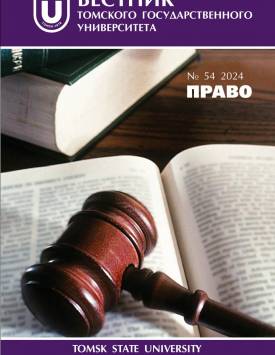Theories of the federal (union) state of German thinkers and statesmen of the XIX century
Many German thinkers in the 19th century came to the idea of a union (federative) state, seeking the unity of the nation, which was to be expressed in the state structure. In the German Movement, the notion of the «union state» was from the very beginning a very important factor of transformation and later became a political slogan. A serious contribution to the development of the theory of the union (federative) state was made by German professors of state law Robert Mohl and Otto Gierke, who set out their own views on the solution of the problem of German unity. Considering the theory of the union (federative) state, Professor Gierke determines that in a union state the state power is organised in exactly the same way as in a simple state. The difference lies only in the peculiar formation of the subject of state power, which is not a single collective person, but a multitude of collective persons connected in a certain way. It should be noted that not all representatives of German state law adhered to this position, finding for the realisation of the idea of German unity such a form of state structure as a union (federal) state. They were opposed in their doctrine by Professor Max Seidel, according to whom «the concept of a union state does not exist at all - it is based on misunderstanding». Max Seidel proposes a different state-legal form for the realisation of the theory of unity in Germany, namely a union of states. A significant contribution to the development of the theory of the union (federal) state was made by the famous German jurist, Professor Paul Laband. He recognised that German unity is possible only with such a form of state structure as a union (federative) state. On the basis of a comparison of the advantages of two state compounds -the union of states and the union state, he justified the value of federation for Germany. The fundamental state-legal foundations of the doctrine of the union (federative) state were developed by the great statesman Georg Jellinek. Georg Jellinek sees the realisation of the idea of German unity only in the form of a union state, which he defines as «a sovereign state formed from several states, whose state power emanates from its individual members bound together in a single state unity». Karl Kautsky, a famous jurist and politician, also made a significant contribution to the development of the idea of German unity. Karl Kautsky's theory of German unity goes beyond the state-legal space of Germany and finds its expression in the unity of the states of Europe. The foregoing allows us to notice that all theories of the unity of the nation, developed by German statesmen in the XIX century, were aimed at, on the one hand, giving a constitutional and legal characteristic of the German state, on the other hand, to contribute to the realisation of the cherished idea of unity on the basis of the union (federal) state. The author declares no conflicts of interests.
Keywords
federal state, union state, state structure, German federationAuthors
| Name | Organization | |
| Geymbukh Nadezhda G. | Tomsk State University | nadgeym@mail.ru |
References

Theories of the federal (union) state of German thinkers and statesmen of the XIX century | Tomsk State University Journal of Law. 2024. № 54. DOI: 10.17223/22253513/54/2
